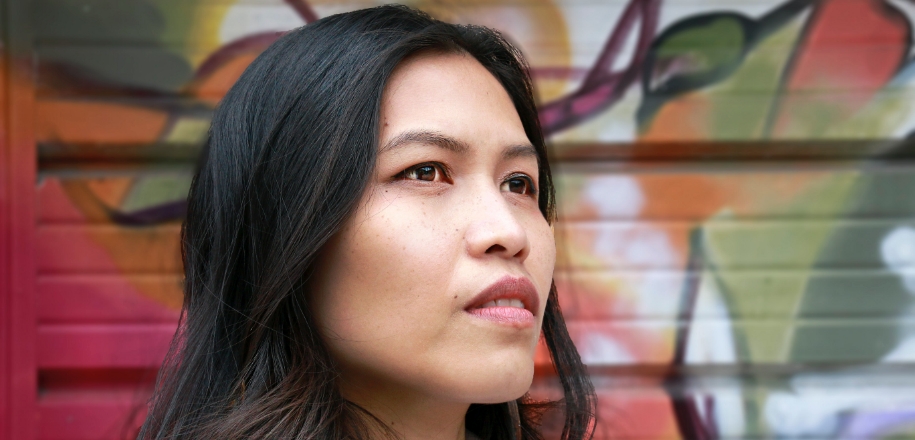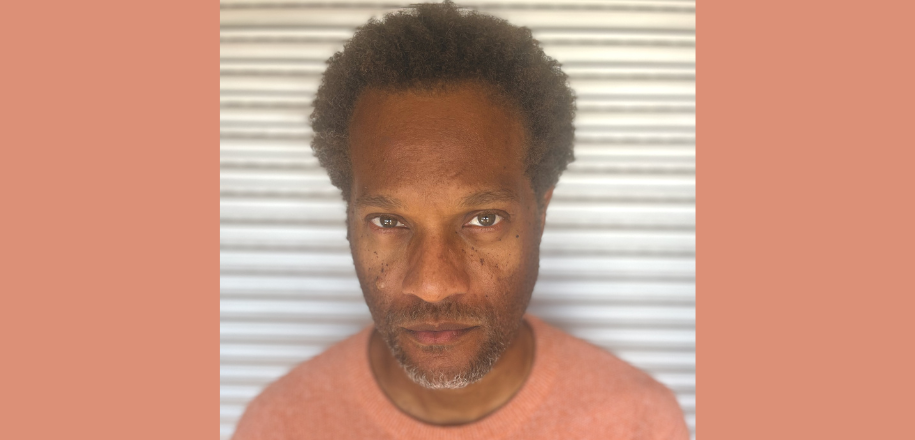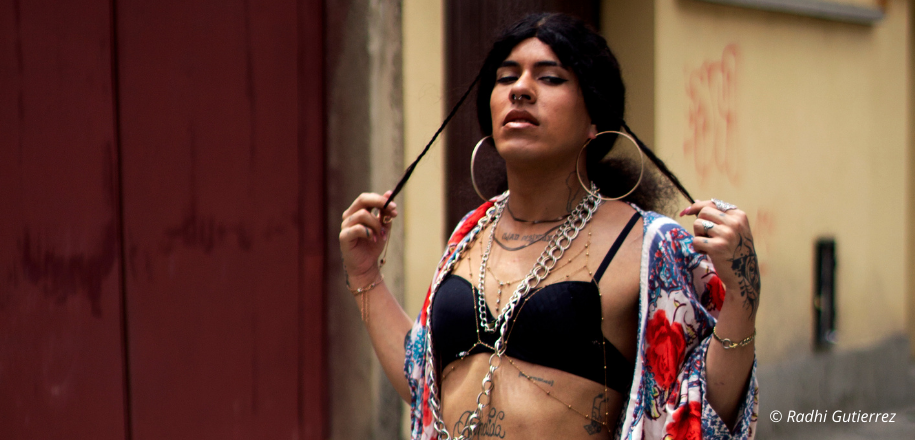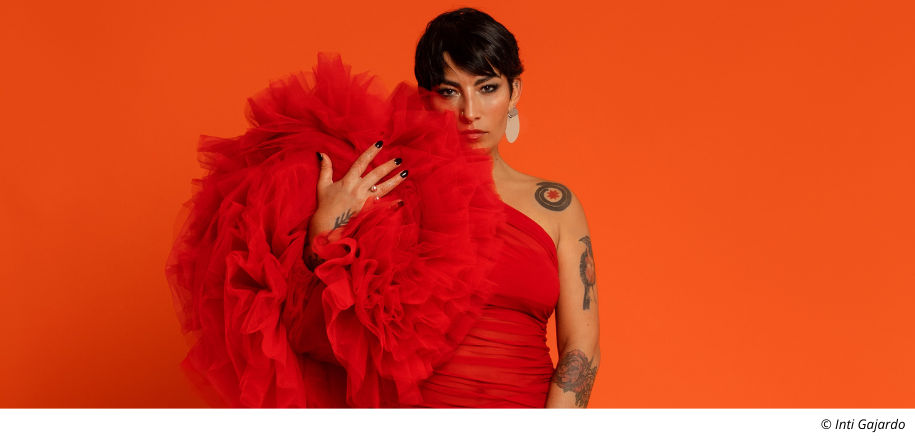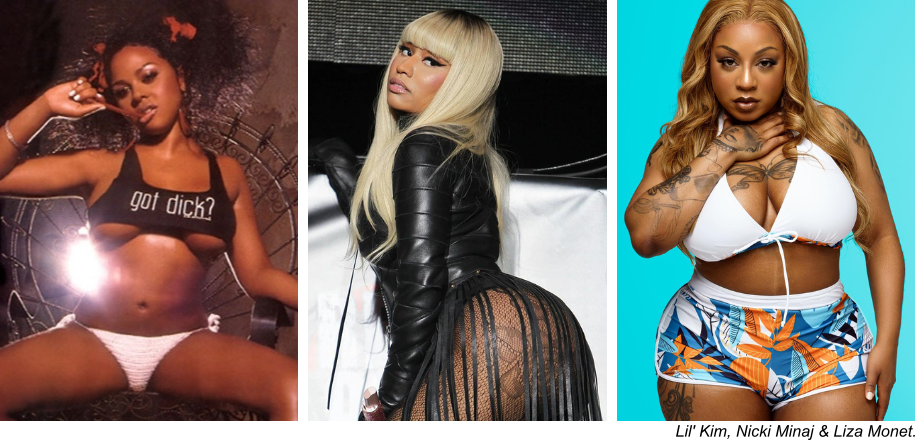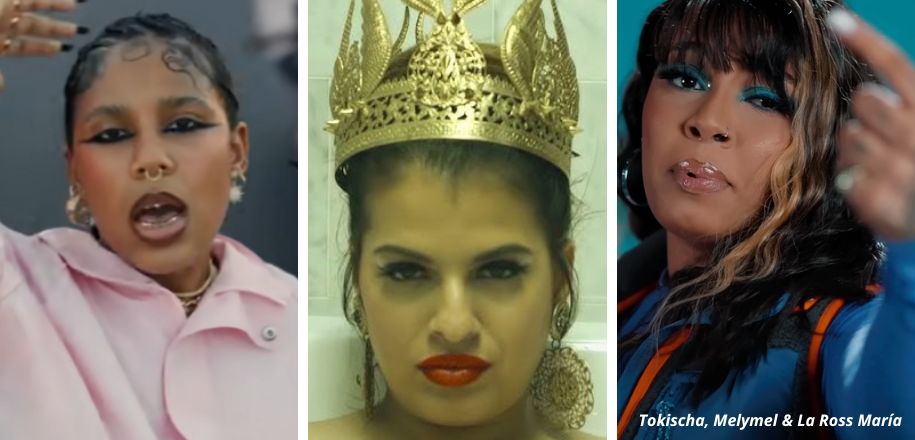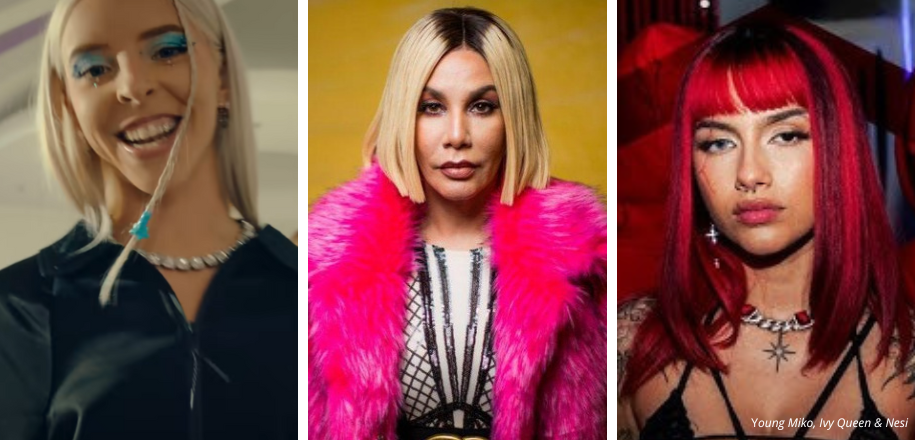Born in the Philippines, Han Han immigrated to Toronto in 2006. The artist explained to us how she combines her work as a rapper and a full-time nurse, the influence of her grand-mother on her second album Urduja and her intersectional feminism.
How and when were you introduced to hip hop?
Since I was young, I always listened to the radio. Sometimes, there was hip hop music. I also had this second-hand CD of Tupac Shakur that I was given to from my mom’s friend. I started listening to it with our neighbor at the time, who was a big 2pac fan too.
But I was really introduced to hip hop when I came to Canada in 2006, when I was 21. I met a lot of people who were in the music scene in Toronto. Most of them were producers of hip hop and one time, they asked me to rap on a beat and I tried it. That was pretty much my introduction, I didn’t really have that in-depth understanding of what hip hop was. Over the years, I learned where hip hop came from and tried to educate myself on the culture itself.
How did you start rapping?
When I was new to the country, one day I walked into this poetry workshop in the cultural center in Kensington Market in Toronto. I had always been writing poetry but never really thought of it as rap verses, but just poetry I kept to myself and it was the first time that I actually read my poem in front of a crowd. Then, I met French Manilla who is also an MC and we just clicked. She invited me to go to her parents’ basement so that we could jam. It so happened that her boyfriend at the time (her husband now) was a producer and got a beat for me. So we just started experimenting and somehow she just asked me to put melodies on my poem. That’s how it started.
“I wanted Filipinos to hear what their language could be, the possibility and the beauty of it”
Some of my friends in the Filipino-Canadian arts community heard the experimental song we created and liked it. All these producers in the arts community were also Filipinos trying to find their roots. And because I rap in Filipino, they found it amazing. A lot of them don’t really speak the language so it’s also one of the reasons why I chose to rap in Filipino. I wanted them to hear what the language could be, the possibility and the beauty of it. A lot of people want to connect to their culture but culture is clearly intertwined with language. And I also really feel more comfortable expressing in the language that I was born into.
How do you manage to combine your work as a full-time nurse with your musical career? (Especially during the coronavirus pandemic?)
Since I started music, I have always been working as a full-time nurse in the operating room and I specialized in cardiac surgery. I never really thought of nursing and music as opposite things, because I think they’re complementary to each other. Nursing is actually an art if you think about it, hence my music supports my nursing. It’s my way of catharsis and destressing and I really look at music and art in general as a kind of therapy for me.
I never really intended for music to be a career, it was more like an outlet for me to express myself. It’s been really helpful for me personally in managing life. And I’m able to fund all these projects because of nursing too. It’s also a source of inspiration when I write songs.
Over the years, I’ve learned how to manage music and work and am very selective. I’ve been very lucky to get all the performances but I don’t actively search for it. I strategize it that way so that I don’t get overwhelmed. I always wanted to have the option to say no when I don’t want to perform or am not feeling 100%.
“During the Covid pandemic, I volunteered to be part of the emergency response intubation team”
I’m also very selective of the festivals because I have to make sure their values are in line with mine because I’m not really doing music for fame or commercial success. My success really is to like what I do and do what I like. Some people say I’m spoiled and privileged, and probably I am because I have a good team behind me but I know not a lot of artists have that. For me, it is really important to have a community and collaboration is the key to everything.
During the pandemic, I volunteered to be part of the emergency response intubation team for Covid patients so music is not my priority right now but I’m staying creative. It’s like I’m doing research, creating raw material for future projects and stuff. I’ve been asked to do livestream shows but I give that space to other artists who are now struggling in this economy and don’t have the chance to have a stream of income. I’m OK.
Your track World Gong Crazy was nominated for “Best Song” in Berlin Music Video Awards 2017. What did this international recognition impact your career?
It was a surprise for me. I just thought of submitting the video and it was nominated. I went to Berlin to perform and although I didn’t win, just being nominated among other international artists was a good recognition and boosted my confidence. It made me realize that there is something in what I’m doing that’s probably resonating to a lot of people.
In the beginning, I didn’t think of music that seriously. It was just something I loved to do and did it in my own time. After that nomination and the video was out, a lot of people messaged me and sort of like thanked me for being me, for putting out the kind of music we put out with my collaborators. I’m really grateful but at the same time, I always really just want to focus on the why I do what I do. I don’t want to lose track of the purpose and keep myself grounded.
It impacted my career tremendously because I got a lot of attention after that. It was actually a little overwhelming because I’m not used to that. But I had a lot of opportunities and got invited to Los Angeles and San Francisco to perform, it was great. But I never did it alone, I did it with my team and I’m just a vanguard in the team. I’m the captain of the ship and I’m leading a whole pack of creatives. That’s the secret I guess.
Poetry plays an important part in your art. What kind of poetry/poets do you like to read?
I have always been writing poetry since I was a kid. I used to write everywhere and whenever inspiration came. I like Maya Angelou and Emily Dickinson. I really like her poems because she can hit you hard with her words and she can describe her feelings really astutely. She’s probably one of my favorite poets. Also I really like Rudyard Kipling’s If and I don’t know if you can consider it poetry but Desiderata. I memorized it when since was a kid
Which track would you say is your best so far and why?
It’s really hard to decide because I’m very meticulous in the songs that I create and put out. It has to be something I like.
“We are a culture of indigenous cultures and colonized bodies and when you fuse them together in sound, language and visuals, then you can create magic.”
I would say World Gong Crazy because I wanted that song to sound modern but at the same time have the elements of traditional gongs. The visuals, the sonics, the languages that are used are all very innovative. We are incorporating both tradition and the new and make it into something neo-Filipino. The song is written in three languages that Filipinos actually speak, which I speak. We wrote it in English, Cebuano and Tagalog and in each verse the whole Philippines and all the regions are being represented. The sound is also representing the north and the south, the costumes, the dances in the music video and the visuals are a representation of the Filipino diaspora. We are a culture of different cultures, of indigenous cultures and colonized bodies and when you fuse them together in sound, language and visuals, then you can create magic.
It is also a song that was written in collaboration with other artists. I like how we did that because it shows you that the way forward is more collaboration rather than isolation. The song shows that if we can all come together, even though we’re all different, then we can actually create magic.
Also, those verses are based on literature. At the time, I was obsessed with Jose Rizal. He’s like the national hero of the Philippines and I read his books Noli me tangere and El Filibusterismo. Those books ignited the revolution of the Philippines in 1896. I used them as references to my verses and it’s like awakening the consciousness of the Filipinos to love their own country and love themselves. You don’t need to aspire to be Western, you just have to be yourself.
I also reference a novel called Bata, Bata… Pa’ano Ka Ginawa? by Lualhati Bautista, which means “Child, child, how are you made?”, and which I use as a hook in the song. Basically what I’m asking is “how is your consciousness made?”. It is actually a feminist novel because it speaks a lot about the role of the modern Filipina in the modern world as the breadwinner of the family but also a mother. There’s a feminist tone to it but it’s a very subtle. It’s one of those books in the Philippines people and young people should read so that’s why I put it in the song to remind people of their culture and the richness of their literature and history.
What is your relationship to the Philippines today?
It’s home. It will always be home. That’s where I grew up and although I embraced my Canadian life, part of me will always be connected to the Philippines. That’s why I rap in my languages so I can stay connected to the Filipino in me.
Usually, when you don’t use your language every day, you tend to forget. And I don’t want to forget. Sometimes I notice that I forget certain words and one way for me to stay connected to my roots is to continue doing my work and try to revive the language in my Canadian consciousness.
I still go there once in a while, last time I was there was in 2018 and hopefully I’ll go back soon.
Who are your female role models?
My grand-mother. I was raised by my grand-mother and she’s really fierce and also soft and very protective. I just really admire her, she’s a very strong woman. A lot of me is because of her and how she raised me as a woman. Her name is Maria Fernandez and she’s basically the inspiration of my second album Urduja, which is also a sort of role model even though she’s a myth!
“Filipinas are always stereotyped as modest and obedient and subservient, almost like followers and never leaders”
Urduja is a warrior princess in Filipino folklore and she bested her brother in a battle to whoever was going to inherit the kingdom of Tawalisi from her dad. Urduja beat her brother and became the leader of Tawalisi. She’s this figure of feminism in the Philippines and a symbol of someone who is totally against patriarchy. Filipinas are always stereotyped as modest and obedient and subservient, almost like followers and never leaders. Urduja is the opposite of that. She never married. So my grand-mother is basically my Urduja, she’s my heroine and the whole album is about being your own hero.
Another role model would be Princess Diana because she was very fragile but also strong. I admire a lot of women but there’s no particular one person that I look up to.
Do you consider yourself a feminist? If so, how would you define your own feminism?
I do. My feminism is intersectional. If we’re fighting for rights here in North America, we should also be fighting for the rights of the seller of goods in the streets of third world countries. Sometimes I feel that feminism here in the West is focused more on individualistic rights and not on the collective. You shouldn’t only be thinking of our own in the West because there are a lot of women out there who don’t have reproductive rights or access to education.
“I hate this idea that feminism is about trying to be men”
A lot of people think feminism is hating men but to me, feminism is an ideology that all men and women should be in equal footing while still recognizing our differences. I hate this idea that feminism is about trying to be men or should only consider strength in aggression and put masculinity as the standard of strength. I think we should focus more on our strength as women, which is really on our feminine side. If we can find that balance in ourselves between masculine and feminine, then that’s great.
I would like to focus more on the power of the feminine and not consider vulnerability as a weakness but as a strength. It is when we’re vulnerable that we can be more empathic of our sisters who are not like us, White, Black, Asian, Indigenous…
Feminism is not just about women who fall into the category of the stereotypical woman, it also encompasses the members of the LGBTQ family. That’s why I say my feminism is intersectional, it’s not just one group, it’s diverse.
What are your upcoming projects?
I recently released my second album Urduja. I was supposed to promote the album and do shows but because of the pandemic, it’s been on hold. But that’s OK. The music’s out there anyway. I just released a video of one of the tracks LDR (Long Distance Relationship). It’s a good timing and just fits to where we are right now. It’s just a fun video and good vibes.
I have upcoming collaborations with other artists from Detroit and Los Angeles and there’s another video coming up but we don’t know when we’re going to release it. Also another one from this producer from LA. Hopefully, I can share them in the coming months. Other than that, I’m just chilling and working at the hospital.
What do you think about Madame Rap? What should be changed or improved?
I think Madame Rap is an excellent platform for female hip hop artists. I was browsing through your website and I really was impressed by the variety and diversity of the people you feature on your platform. I’m really grateful you even considered me to be one of the artists you feature ! Hip hop is like a global phenomenon now and it’s really good to have such a platform for artists from other corners of the world to showcase their talent.
Maybe you could showcase more artists from South East Asia and Africa. A lot of people there feel they’re missing out on the West. But it is us on the West who are missing out on the culture, outside our own bubble. We’re missing out on the creativity in developing countries, there’s so much out there. It would be cool to feature those artists too.
Find Han Han on Facebook, YouTube, Instagram and Bandcamp.
© Andrew Pimento

